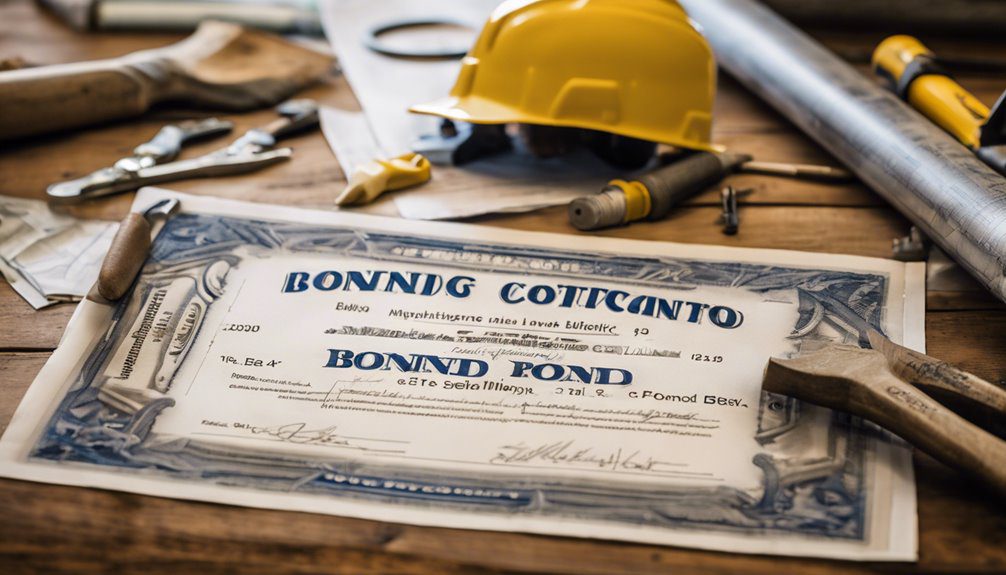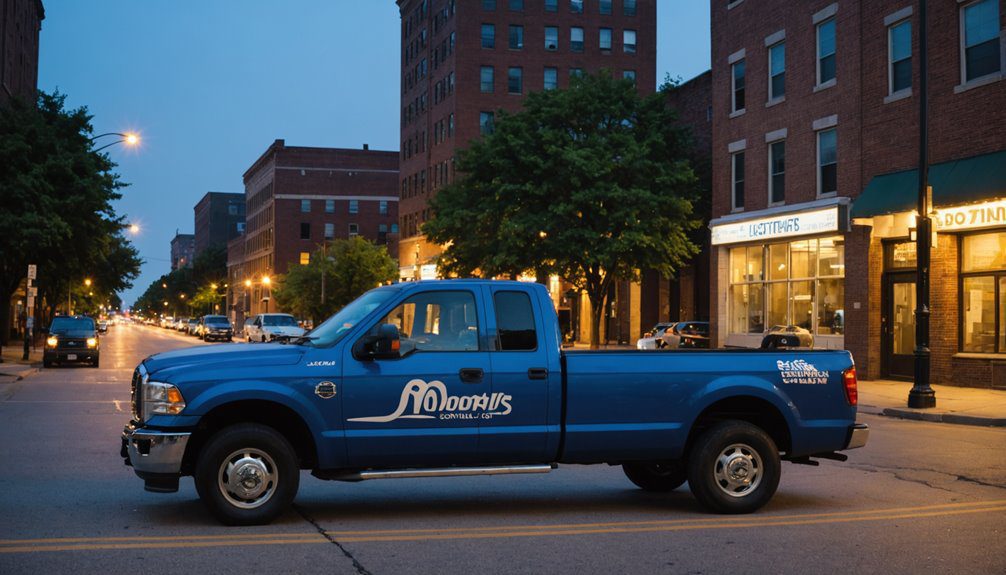If you're a contractor in Memphis and Shelby County, TN, you might be wondering about the importance of a Contractor License Bond. This bond not only ensures you comply with local regulations but also protects your clients and enhances your credibility in the industry. However, navigating the requirements and understanding the types of bonds available can be tricky. What happens if you overlook a key detail? Let's explore how to secure your business and avoid common pitfalls that could impact your projects.
What Is a Contractor License Bond?

A contractor license bond is a crucial requirement for anyone looking to operate legally in Memphis and Shelby County. This bond acts as a form of protection for both the public and the contractor. Essentially, it's a three-party agreement involving you, the project owner, and a surety company. By securing this bond, you're promising to adhere to local laws and regulations in your contracting work.
When you obtain a contractor license bond, you're demonstrating your commitment to ethical business practices. If you fail to meet your obligations, such as completing a project as per the agreed terms, the bond ensures that affected parties can file a claim against it. This process helps to hold you accountable, ensuring that you follow the rules and maintain quality standards. In Memphis and Shelby County, the bond is often a requirement for acquiring your contractor's license. It's not just paperwork; it signifies trust and reliability in the eyes of your clients. Additionally, this bond serves to protect the owner from potential contractor default by ensuring that claims can be made if obligations are not fulfilled.
Importance of a Contractor License Bond
Understanding the importance of a contractor license bond can significantly impact your business's success. This bond acts as a financial safety net, ensuring that you meet local regulations and maintain a standard of quality.
When clients see that you have a contractor license bond, they're more likely to trust your services, which can boost your reputation and attract more customers.
Additionally, a contractor license bond protects you against potential claims or disputes. If a client feels dissatisfied with your work, the bond provides a way for them to recover losses, fostering a sense of security. This reassurance can set you apart from competitors who lack similar protections.
Moreover, having a bond often opens doors to larger projects. Many clients and organizations require contractors to be bonded before they'll even consider hiring them. Furthermore, being bonded in Illinois can enhance your business's credibility and trustworthiness in the industry.
Requirements in Memphis and Shelby County

In Memphis and Shelby County, securing a contractor license bond requires meeting specific obligations set by local authorities.
First, you'll need to obtain a contractor license from the city or county. This process typically involves submitting an application, providing proof of experience, and paying any required fees.
Next, you must choose a bond amount that aligns with the scope of your work. The bond amount varies based on the type of contracting services you provide.
After determining the necessary bond amount, you'll need to find a surety company willing to underwrite your bond.
It's essential to maintain a good credit score, as this can affect your bond premiums. Additionally, you may be required to provide financial statements or other documentation to demonstrate your financial stability.
Lastly, ensure you familiarize yourself with any local regulations or laws that pertain to your specific trade. Compliance with these regulations is crucial not only for obtaining the bond but also for maintaining your contractor license in Memphis and Shelby County. Additionally, understanding the types of surety bonds available can help in selecting the right bond for your contracting needs.
Types of Contractor License Bonds
Once you've secured your contractor license bond, it's important to know the different types available to ensure you choose the right one for your needs. Typically, you'll come across three primary types: bid bonds, performance bonds, and payment bonds.
Bid bonds are essential when you're submitting a proposal for a construction project. They guarantee that you'll enter into a contract if you win the bid. This reassures the project owner that you're serious and financially capable.
Performance bonds come into play once you've signed a contract. They protect the project owner by ensuring that you'll complete the project according to the terms agreed upon. If you fail to meet these obligations, the bond can cover the financial losses incurred.
Lastly, payment bonds are designed to protect subcontractors and suppliers. They ensure that all parties involved in the project get paid for their work, preventing potential disputes and claims against your business. Understanding these types of contractor license bonds can help you make informed decisions and safeguard your business interests, so you can focus on successfully completing your projects. Additionally, being aware of the regulatory framework governing surety bonds can further enhance your compliance and operational efficiency.
How to Obtain a Contractor License Bond

Obtaining your contractor license bond is a straightforward process that requires a few essential steps.
First, you'll need to determine the specific bond amount required for your license in Memphis and Shelby County. This amount can vary depending on your trade and the regulations in your area.
Next, gather the necessary documentation, which typically includes your business license, proof of insurance, and personal identification.
Once you have these documents ready, it's time to shop around for surety bond providers. Look for reputable companies with competitive rates and favorable terms.
After selecting a provider, you'll need to complete an application. This may involve answering questions about your business history, financial standing, and any relevant experience.
The surety company will then assess your application and determine your eligibility.
Once approved, you'll receive your bond, which you'll need to sign and pay the premium for. Additionally, ensure that you comply with state laws to facilitate the bond issuance.
Finally, submit your bond to the appropriate licensing authority to complete the process.
After that, you're all set to operate legally as a contractor in Memphis and Shelby County!
Common Mistakes to Avoid
Navigating the process of securing a contractor license bond can be tricky, and avoiding common mistakes is crucial for a smooth experience.
One major pitfall is underestimating the bond amount. Make sure you understand the specific requirements for Memphis and Shelby County, as they can vary based on your business type.
Another mistake is failing to shop around for the best rates. Different surety companies offer varying premiums, so take the time to compare.
Don't overlook the importance of your credit score, either. A low score can lead to higher premiums, so you might want to address any credit issues beforehand.
Also, be wary of incomplete applications. Double-check that all required documents are submitted, as missing information can delay the process.
Lastly, don't ignore the fine print. Read the terms and conditions of your bond carefully to avoid surprises down the line. Understanding the financial implications of non-compliance can also help you make informed decisions regarding your bond.
Conclusion
In summary, obtaining a Contractor License Bond in Memphis and Shelby County is crucial for your success in the construction industry. It not only ensures compliance with local regulations but also protects your reputation and builds trust with clients. By understanding the requirements and avoiding common mistakes, you can navigate the bonding process smoothly. Don't underestimate the importance of this bond—it's a key step toward enhancing your credibility and unlocking bigger project opportunities.


